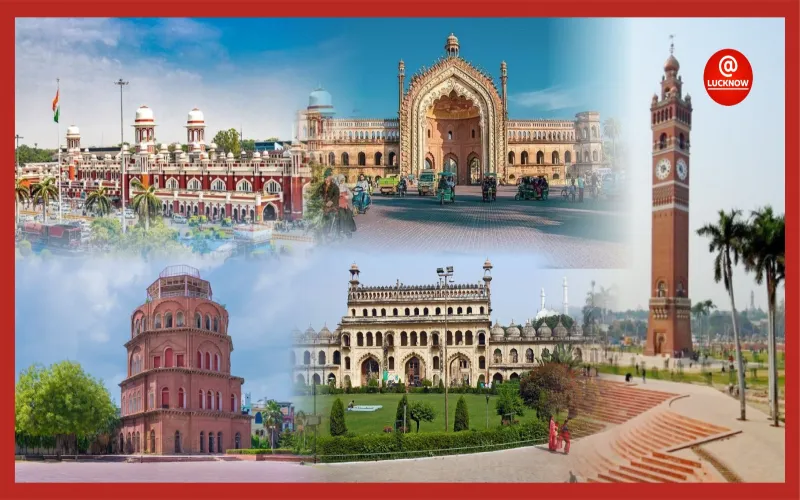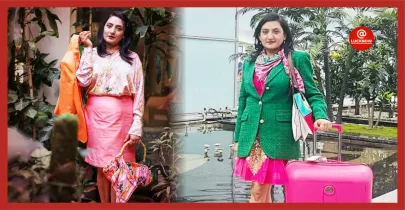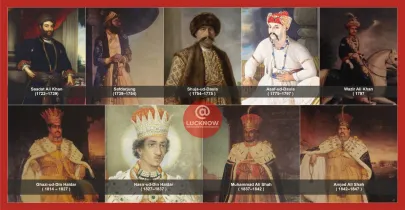Lucknow: The Heartbeat of India's Rich Cultural Heritage
Posted on 09 November, 2024
Lucknow, the capital of Uttar Pradesh, is a city with a deep and rich cultural legacy, blending history with modernity. Known for its royal past, the city has been ruled by various dynasties, each leaving a distinct imprint on its cultural landscape. From the Mughals and the Nawabs of Awadh to the British, Lucknow’s history has shaped its present identity. Today, the city is renowned for its diverse cultural elements, including its architectural styles, cuisine, language, art forms, literature, and handicrafts. Lucknow remains a vibrant reflection of the past, offering a glimpse into its glorious history and unique cultural traditions.
The History of Lucknow: A Royal Beginning
Lucknow’s roots trace back to the 16th century when it was founded by the Mughal Emperor Akbar. The city flourished under the rule of the Nawabs of Awadh, who were great patrons of art, culture, and literature. The Nawabs not only enriched the cultural fabric of the city with their love for music, dance, and poetry but also cultivated a unique style of cuisine that blended Mughal and Awadhi flavors. The Nawabi era played a crucial role in establishing Lucknow as a cultural hub in Northern India.
In the 19th century, when the British arrived, Lucknow saw a new phase of transformation. They introduced new architectural styles and institutions, which complemented the city’s existing Mughal and Nawabi heritage. However, it was during this period that Lucknow became central to India's independence movement, especially during the First War of Indian Independence in 1857. The rebellion left an indelible mark on the city’s history and has since been a significant aspect of its cultural and historical identity.
The Warmth and Etiquette of Lucknow: The Tehzeeb of the City
One of the most remarkable aspects of Lucknow's culture is its "tehzeeb," a term used to describe the refined manners, etiquette, and respect for tradition. The people of Lucknow are known for their warm hospitality, which is deeply rooted in their cultural ethos. When you meet a “Lakhnawi,” you will notice the distinct way of speaking, the respectful mannerisms, and the generosity they show towards guests.
This culture of courtesy and respect is reflected in the way people interact with each other, especially when it comes to elders or visitors. Residents of Lucknow often refer to themselves as "Lakhnawis" or "Nawabs," acknowledging the city’s rich historical background. This sense of pride in their heritage and traditions has made Lucknow a unique place in India, where people from different ethnicities and religions live in harmony.
Language: The Heart of Lucknow’s Culture
Language plays a central role in shaping the identity of Lucknow. The most prominent language spoken in the city is Urdu, which has become an integral part of its cultural fabric. It is a language known for its poetic beauty and is a major influence in Lucknow’s music, literature, and art. Urdu developed during the Mughal era and, over time, has come to symbolize the city's elegant way of life. In addition to Urdu, Hindi, Awadhi, and Braj are also spoken in various parts of the city, reflecting the region's linguistic diversity.
Lucknow has produced many renowned poets, writers, and scholars, and it continues to be a hub for creative expression through language. The city’s linguistic heritage is rich with beautiful expressions, with many poets and writers using the language to narrate the city’s rich history, cultural values, and traditions.
The Exquisite Cuisine of Lucknow
Lucknow is a food lover's paradise, with its cuisine being one of the most celebrated aspects of the city. The city's food culture is heavily influenced by its Mughal and Nawabi past, where royal kitchens created a blend of flavors from Central Asia, Persia, and the Middle East. The cuisine is known for its richness and the use of aromatic spices.
Some of the most famous dishes from Lucknow include:
- Kebabs: The city is most famous for its kebabs, such as Tunde Kebab, Seekh Kebab, and Galouti Kebab. These succulent, spiced meat dishes are cooked on charcoal grills, giving them a distinct smoky flavor. The Tunde Kebab, in particular, is renowned for its tenderness and mouthwatering taste.
- Biryani: Lucknowi Biryani is a flavorful rice dish cooked with meat (usually mutton) and fragrant spices. This dish is a true reflection of Lucknow’s royal Mughal heritage.
- Nihari: A slow-cooked stew made with mutton, Nihari is a dish traditionally prepared overnight and served as a hearty breakfast.
- Navratan Korma: This rich, creamy vegetarian dish is made with mixed vegetables, nuts, and dry fruits, offering a royal taste.
- Makkhan Malai: A winter delicacy, Makkhan Malai is a creamy sweet dish made of milk, saffron, and spices, served cold.
These dishes reflect the diverse and flavorful elements that make up Lucknow’s culinary heritage.
The Craftsmanship of Lucknow: Handicrafts and Traditional Arts
Lucknow is home to a range of traditional crafts that have been passed down through generations. These handicrafts represent the artistic and cultural wealth of the city. Some of the most famous forms of craftsmanship include:
- Chikan Embroidery: A delicate and intricate embroidery technique, Chikan Kari involves hand-stitching floral patterns on fabrics like cotton, silk, and muslin. It is often used to make sarees, kurtas, and dupattas, and is one of Lucknow's most famous exports.
- Zardozi Work: Zardozi is an intricate form of embroidery that uses metallic threads and sequins to create stunning patterns. This art form is typically used in bridal wear and heavy ceremonial outfits.
- Jali Work: Jali work involves creating decorative lattice patterns in wood and stone. This unique architectural feature is often seen in the windows and walls of historic buildings and palaces in Lucknow.
- Pottery: The city also has a strong tradition of pottery, where artisans craft beautiful pieces such as vases, bowls, and decorative items, often adorned with detailed designs.
These handicrafts not only preserve the cultural heritage of Lucknow but also contribute to its economy, as they are sought after both in India and abroad.
Kathak: The Dance of Lucknow
Kathak, one of the eight classical dance forms of India, originated in the temples of northern India and flourished in Lucknow under the patronage of the Nawabs of Awadh. Kathak is characterized by graceful movements, intricate footwork, and expressive storytelling through hand gestures.
The city has produced many famous Kathak dancers, including the legendary Pandit Birju Maharaj and Lachhu Maharaj, who have carried forward the tradition and enhanced the global reputation of Kathak. The classical dance form remains an integral part of Lucknow’s cultural heritage, continuing to be performed in theaters and festivals across the world.
Music: Ghazal, Qawwali, and Thumri
Lucknow has also made significant contributions to the world of music, particularly in the genres of Ghazal, Qawwali, and Thumri.
- Ghazal: This poetic form of music, which is often about love, longing, and loss, became popular in Lucknow during the Mughal era. Ghazals are known for their lyrical beauty, and many famous poets and singers have hailed from Lucknow.
- Qawwali: A devotional form of music popular in Sufi culture, Qawwali is known for its powerful rhythms and soul-stirring melodies. The city has produced many renowned Qawwali singers who continue to keep this tradition alive.
- Thumri: This semi-classical vocal music originated in the Awadh region and is known for its light classical melody and romantic lyrics. Thumri has been an integral part of Lucknow’s musical culture for centuries.
Lucknow’s Legacy: A Blend of the Old and the New
Lucknow continues to be a city where history and modernity exist side by side. While it embraces contemporary changes and developments, it has not lost touch with its rich heritage. The Nawabi charm, Mughal elegance, and cultural diversity of Lucknow continue to influence the lives of its residents and the visitors who come to experience its unique offerings.
Whether it’s the cuisine, handicrafts, dance, music, or the warm hospitality of its people, Lucknow offers an unforgettable cultural experience that connects the past with the present. For anyone interested in exploring India’s rich heritage, Lucknow is a must-visit destination. It is not just a city; it is a living testament to India’s glorious cultural history.







